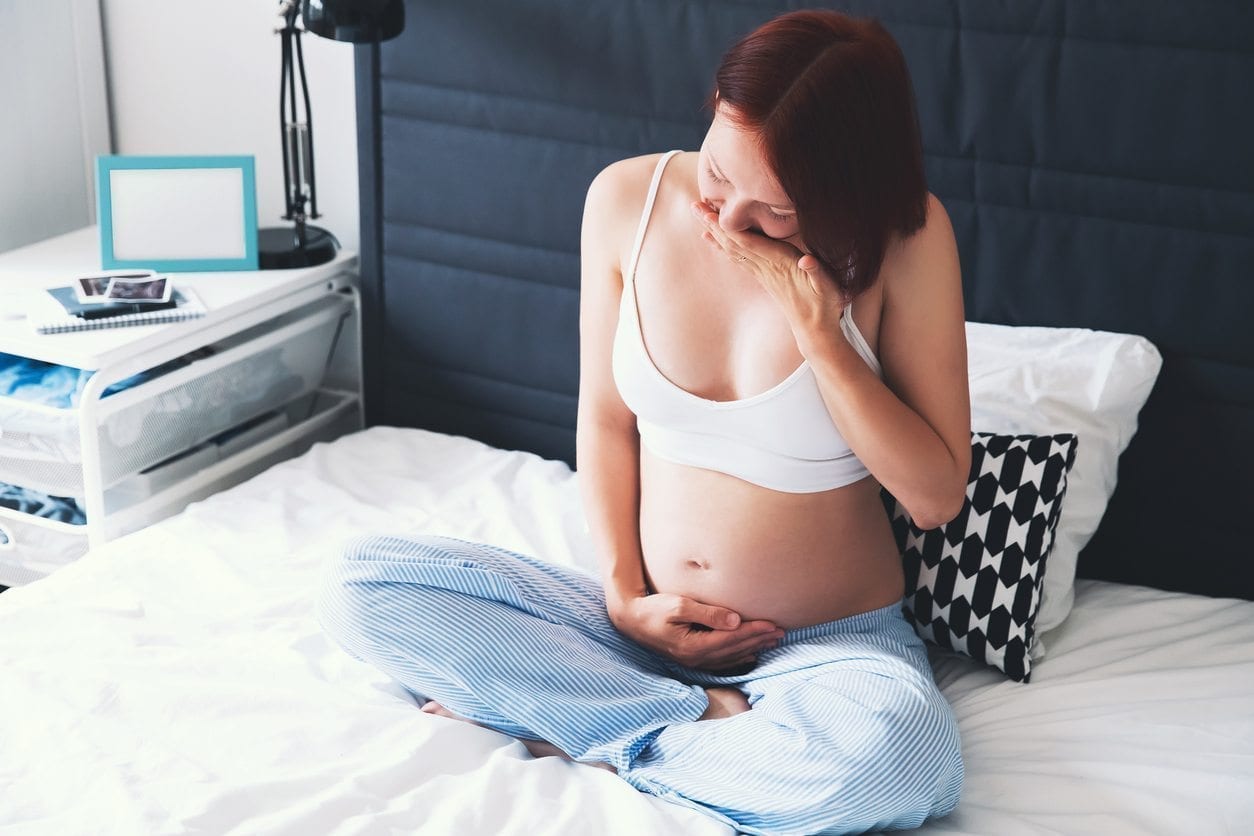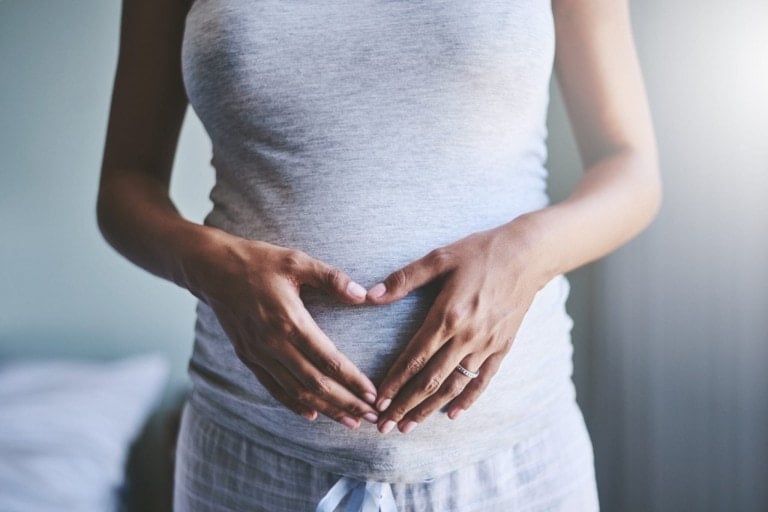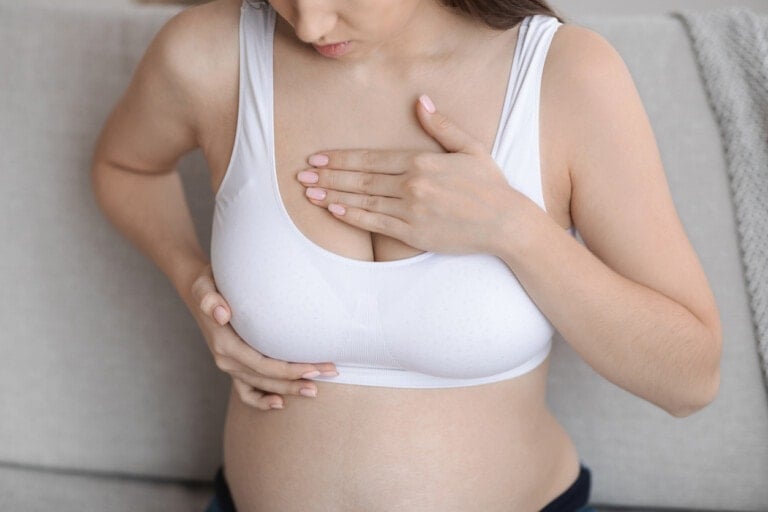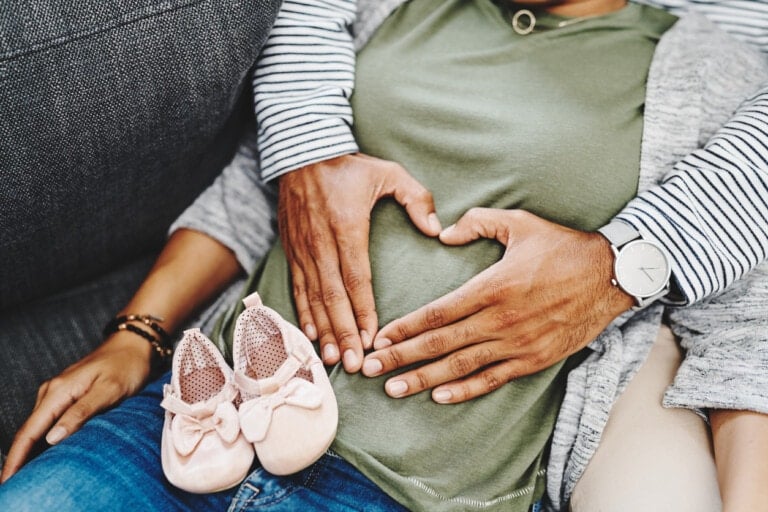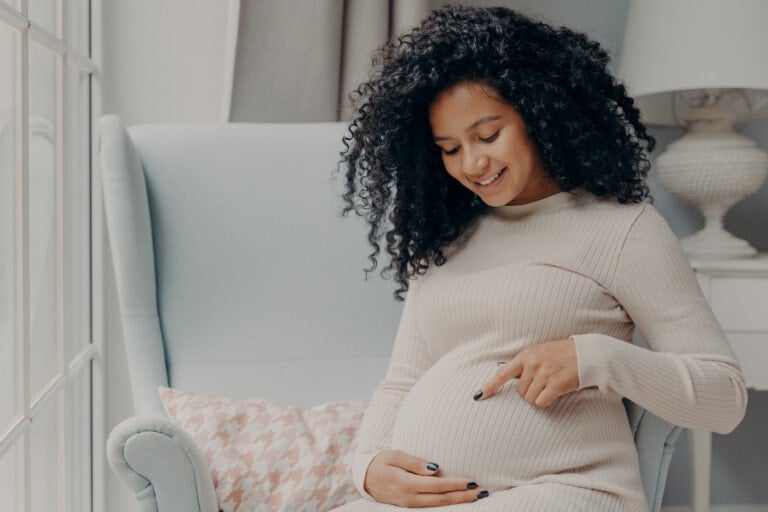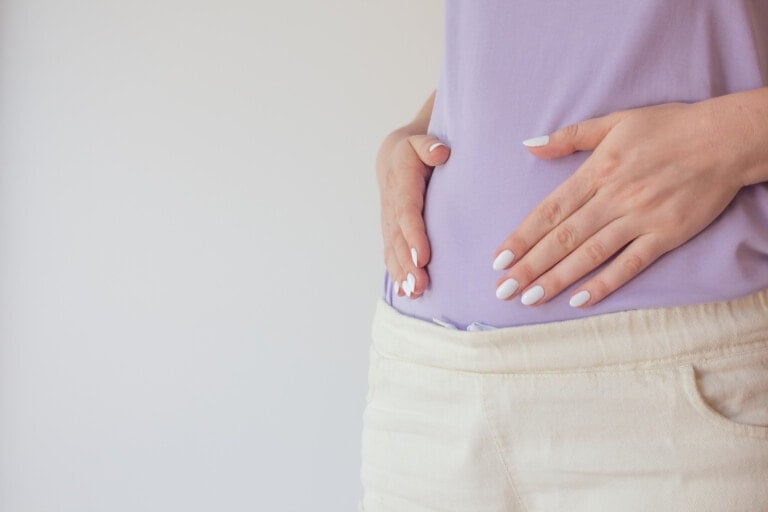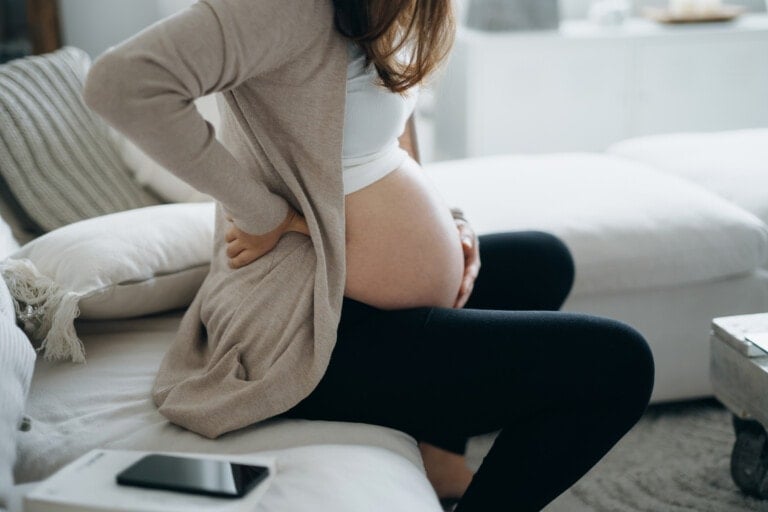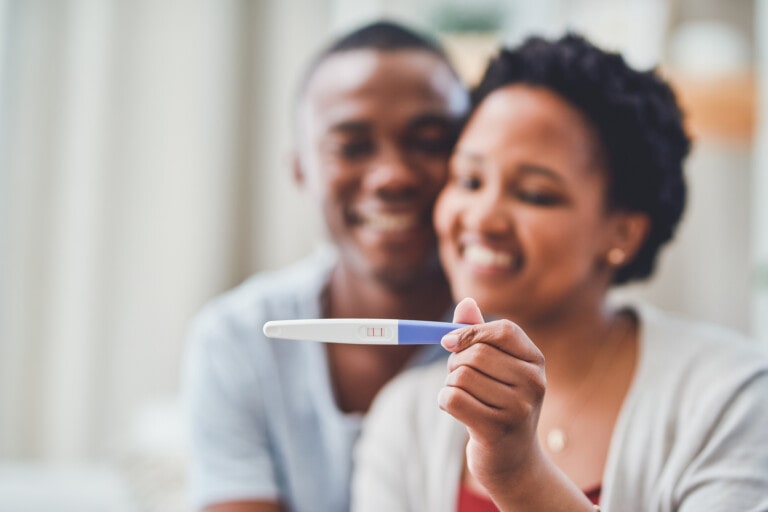Trying to conceive and pregnancy are filled with so much waiting: waiting to take a pregnancy test, waiting for your first ultrasound, and waiting to meet your baby face-to-face. From the moment you think you may be pregnant until you can confirm that with a positive pregnancy test, you might be hyper-sensitive to what is happening in your body. And you might be curious about what the early signs of pregnancy are.
The waiting period between possible conception and a confirmed pregnancy is often called the two-week wait. To kill time and occupy their minds during the waiting phase, many women begin to “symptom-spot” or suspect that every little twinge might mean they are pregnant.1 This might make you wonder what the early signs of pregnancy are. When do these early pregnancy symptoms appear? And when can you know for sure with an accurate pregnancy test?
We will examine and explain the signs of early pregnancy, with a timeline of when you might expect them and when you can confirm they are pregnancy-related!
What Causes Pregnancy Symptoms?
Pretty much all early pregnancy signs can be attributed to hormones. At four weeks pregnant, your baby is not much bigger than a grain of sand. Still, their presence in your uterus is causing the pregnancy hormones like progesterone and human chorionic gonadotropin (hCG) to skyrocket.2
These hormones signal your body to ramp up for pregnancy. Your uterus will need to expand, your blood volume will increase, and your breasts will prepare for breastfeeding. Despite your tiny embryo existing only in a small area of your womb, you might experience different symptoms all over your body, all thanks to hormones.2
When Do Pregnancy Symptoms Start?
When a fertilized egg implants into your uterine lining, it begins secreting hormones that can cause symptoms. Implantation happens six to eight days after ovulation or about a week before your missed period.3
Pregnancy signs can begin as soon as implantation occurs. These symptoms may ramp up in intensity, and new symptoms may pop up as time passes. The pregnancy hormone responsible for many symptoms, hCG, rises quickly in early pregnancy and peaks around 10 weeks.4
What Are the Early Signs of Pregnancy?
Breast tenderness
Changes to your breasts are often one of the first signs of pregnancy. Although breastfeeding is still far off, hormones are already at work, encouraging the production of milk glands. They may be swollen and feel heavier or fuller than usual. Your breasts may be extremely sensitive to the slightest touch, especially the nipple and areola. You may also notice that your areolas have become darker, larger, and bumpier.5,6
Fatigue
The increased energy demands on your body, from enlarging breasts and uterus to increased blood supply for the heart to pump, can cause you to feel exhausted, even early in pregnancy.5
Frequent Urination
Increased blood volume and blood flow to your pelvic region can cause a frequent urge to pee long before the baby is big enough to put pressure on your bladder.5,7
Dizziness and Headaches
Hormone changes, increased blood volume, and decreased blood pressure during early pregnancy can cause headaches and dizziness. If you experience these symptoms, sit down to prevent passing out.7,8
Nausea
Despite the name “morning sickness,” nausea during pregnancy can occur at any time of day. Many women experience nausea without vomiting, but vomiting is possible, too. Although the cause of pregnancy nausea is unknown, it is thought to be related to hormones, so it often resolves in the second trimester, after hCG levels begin declining.
Nausea can become a problem if frequent vomiting causes dehydration and electrolyte imbalances. Otherwise, it is just an uncomfortable and annoying early symptom that can make it difficult to hide your pregnancy!9
Food Cravings or Aversions
Certain foods you have always loved may suddenly repulse you, which could tip you off that you may be pregnant. Anecdotally, many women report an aversion to meat, particularly in the first trimester.
You may also crave seemingly random or different foods than usual. It is OK to indulge in these cravings if you are adequately nourished and they are food items, not things like dirt or clay, which can signal a nutrient deficiency.10,11
Metallic Taste
Along with cravings or aversions, some women report feeling like they have the taste of a coin in their mouth, even if they have not eaten anything. This is because pregnancy hormones can change your sense of taste very early in pregnancy. If it is bothersome, you can try neutralizing the metallic taste with oral hygiene, a saltwater-and-baking-soda rinse, or acidic foods like citrus and vinegar.12
Congestion
Pregnancy congestion can begin early in the first trimester for some women, likely due to hormonal changes and increased blood flow and blood supply.7
Cramping and Spotting
When the fertilized egg implants in the uterus, this can cause uterine cramping and light vaginal bleeding. These symptoms can make it seem like your period is coming, which can be confusing. This usually happens around the time of implantation or a few days before your period is due.5
Missed Period
All these symptoms can make you suspect you might be pregnant, but the telltale sign of pregnancy is a missed period. If your period is due to arrive and never comes, this is your best indication to take a pregnancy test.
When Can You Take a Pregnancy Test?
Once your period is late, it is an excellent time to take a pregnancy test and get reliable results. You may get a positive pregnancy test as early as nine days after ovulating, but you may not know exactly when you ovulate. Pregnancy tests are 98 percent accurate by the day of your missed period.3
When To Call Your Doctor
As soon as you get a positive pregnancy test, you can call your doctor to book your first prenatal visit and maybe even your first ultrasound! Many obstetric practices book out weeks or months in advance, so it is a good idea to get on their schedule as soon as possible.
Depending on the practice and your medical history, your provider may want to confirm the pregnancy, draw blood, and run some labs early.
Always contact your doctor if you have any unusual or concerning symptoms. While light-headedness, vomiting, and vaginal bleeding can be normal early pregnancy signs, your doctor may want to rule out other concerns if these symptoms are severe. They may also be able to make recommendations for techniques or medications to help you manage these symptoms.
Speculating what early pregnancy signs might mean (a new baby!) can be fun, but ultimately the best indicator of pregnancy is that positive test. If you are experiencing signs of early pregnancy and suspect you might be pregnant, it is probably time to take an at-home pregnancy test. You may start experiencing symptoms around the same time you get that double pink line.
While many early pregnancy signs and symptoms are unpleasant, they typically peak in the first trimester before resolving and making way for new symptoms in the second and third trimesters. All these symptoms are good signs that your pregnancy is progressing and your baby is growing as it should.













